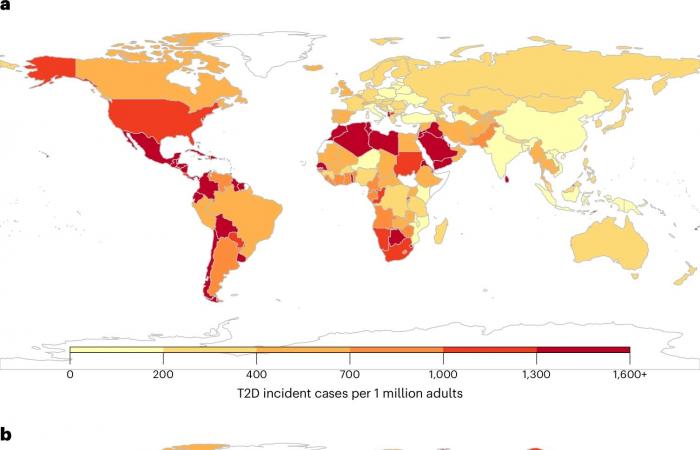Sugary drinks don’t just quench thirst: they represent a major danger to public health. A recent study reveals their alarming impact on chronic diseases across the world.
Sodas and other sugary drinks are often seen as harmless pleasures. However, their excessive consumption is linked to millions of cases of diabetes and cardiovascular diseases each year. A study published in Nature Medicine to measure light this health crisisparticularly worrying in developing countries.
An underestimated global impact
The researchers of theUniversité Tufts analyzed data from 118 countries, covering almost 87% of the population mondiale. Their results show that 2.2 million new cases of type 2 diabetes and 1.2 million cardiovascular diseases are directly attributable to these drinks each year.
These figures represent a significant share of global cases, with marked regional variations. Low- and middle-income countries are most affected, due to limited access to healthy alternatives and high exposure to industrial marketing.
Developing countries on the front line
In Colombia, almost half of new cases of diabetes are linked to sugary drinks. In Mexico, this figure reaches 30%, while in South Africa it stands at 27.6%. These countries are bearing the brunt of the consequences of excessive consumption, aggravated by a lack of health policies. prevention effective.
b) Absolute incidence of cardiovascular disease attributable to sugary drinks.
Values are expressed per 1 million adults and limited to 1600 (a) and 600 (b).
In sub-Saharan Africa and Latin America, sugary drinks contribute to more than 20% of new cases of diabetes. These regions, already facing major health challenges, are seeing their situation worsen with the growing adoption of Western diets.
Worrying biological mechanisms
Sugary drinks are quickly digested, causing spikes in blood sugar and resistance toinsulin. Their low nutritional value and high calorie content also promote weight gain and metabolic disorders.
These effects, cumulative over the long term, explain their close link with diabetes and cardiovascular diseases. Young adults and urban populations are particularly vulnerable, due to their increased exposure to these products.
Promising policy solutions
Some countries have already taken measures to limit the consumption of sugary drinks. Mexico, for example, introduced a tax in 2014, leading to a significant drop in sales. These initiatives show that targeted policies can have a positive impact.
However, the authors of the study emphasize the need for global action. They advocate higher taxes, clear labeling and awareness campaigns to reduce consumption, particularly in the most affected countries.
Towards international coordination
To effectively combat this scourge, a coordinated approach between governments, health organizations and industrial players is essential. Promoting healthy alternatives, such asdrinking watermust also be a priority.
Researchers call for urgent mobilization to prevent millions of avoidable deaths. Without rapid action, sugary drinks will continue to take a heavy toll on global health systems.







